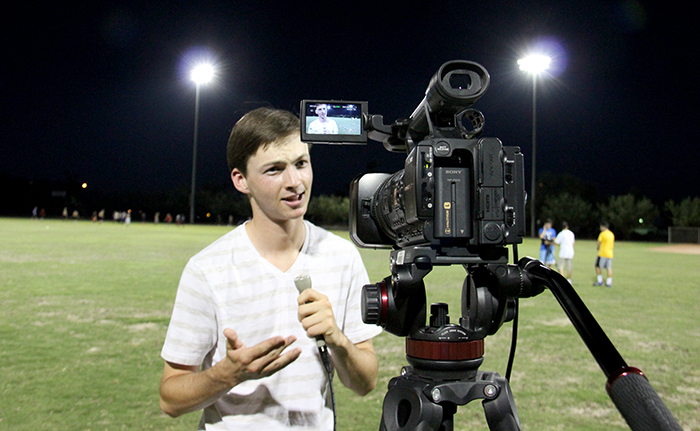
His work has appeared in Science et Vie, La Recherche, and Le Monde. Yves Sciama is a freelance journalist from Grenoble, France. Jonathan Sahula is a freelance film and video editor and producer who frequently works for PBS’s NOVA. Susan Phillips is an energy reporter and multi-media journalist with StateImpactPennsylvania, a joint project of NPR/WHYY/witf. Jason Palmer is a science and technology reporter with BBC News, based in London.


Lynda Mapes of Seattle, WA is a staff writer at the Seattle Times, specializing in natural history, environmental topics and native cultures. Mark Harris is a freelance writer for The Economist and The Sunday Times, among others, and a contributing editor at IEEE Spectrum. Rachel Ehrenberg is an interdisciplinary sciences/chemistry writer, with Science News, based in Washington, DC. Nick Clark is a Doha, Qatar-based anchor/correspondent with Al Jazeera English. Julia Belluz is the senior editor at The Medical Post, a contributing writer at Maclean’s magazine, and creator of the blog Science-ish, based in Toronto, Canada. The journalists will study science, health, environment and technology at MIT during the academic year 2013-14.Ĭatalina Arevalo is an environment correspondent for the leading Spanish language news agency, EFE, based in Madrid, Spain.Īleszu Bajak is a freelance journalist and founder of, a weekly bilingual digest of science news out of Central and South America. Knight Science Journalism at MIT has selected twelve journalists working in six countries for its 31st class of Fellows. She is a Senior Fellow of the Schuster Institute for Investigative Journalism at Brandeis University. She is a columnist for Scientific American and blogs for Wired. She is the author of SUPERBUG: The Fatal Menace of MRSA (Free Press/Simon & Schuster, 2010), an investigation of the global epidemic of drug-resistant staph, which received the 2013 June Roth Memorial Book Award and the 2011 Science in Society Award and BEATING BACK THE DEVIL: On the Front Lines with the Disease Detectives of the Epidemic Intelligence Service (FP/S&S, 2004), which recounts a year she spent embedded with the CDC’s rapid- reaction force and which was named a Top Science Book by Amazon and an Outstanding Academic Title by the American Library Association. She has reported from a field hospital in New Orleans during Hurricane Katrina, a village on Thailand’s west coast that was erased by the Indian Ocean tsunami, a CDC team investigating the anthrax- letter attacks on Capitol Hill, a graveyard within the Arctic Circle that held victims of the 1918 flu, a malaria hospital in Malawi, an isolation ward for multi-drug resistant TB in Vietnam and a polio-eradication team in India. She is a journalist and author who writes about public health, global health, medicine, and food policy.
#Cronkite asu bootcamp series
She will carry out research on food science and food production and will produce a book-length text and a series of multimedia stories from the research. Our alumni hold positions around the world as reporters, editors, producers, correspondents, anchors, media managers and public relations specialists at online media outlets, television stations, newspapers, magazines, digital agencies, radio stations, public relations firms and corporate and government public relations departments.The Knight Science Journalism Program at MIT has selected Maryn McKenna as its 2013-2014 Journalism Project Fellow. Students are guided by a faculty of master teachers, writers, scholars and practitioners with deep experience and expertise in every aspect of journalism and strategic communications.

#Cronkite asu bootcamp professional
Our mission is to prepare the next generation of journalists and communications professionals while also taking responsibility for the fundamental news and information needs of the community through an innovative journalistic “teaching hospital.” At Arizona PBS, our Digital Audiences Lab, and other full-immersion professional programs, students get hands-on experience producing news, strategic campaigns and community engagement on critical issues for the state, region and nation.

The Walter Cronkite School of Journalism and Mass Communication is one of the nation’s premier professional journalism and strategic communications programs, and is home to Arizona PBS, the largest media outlet operated by a journalism school in the world.


 0 kommentar(er)
0 kommentar(er)
